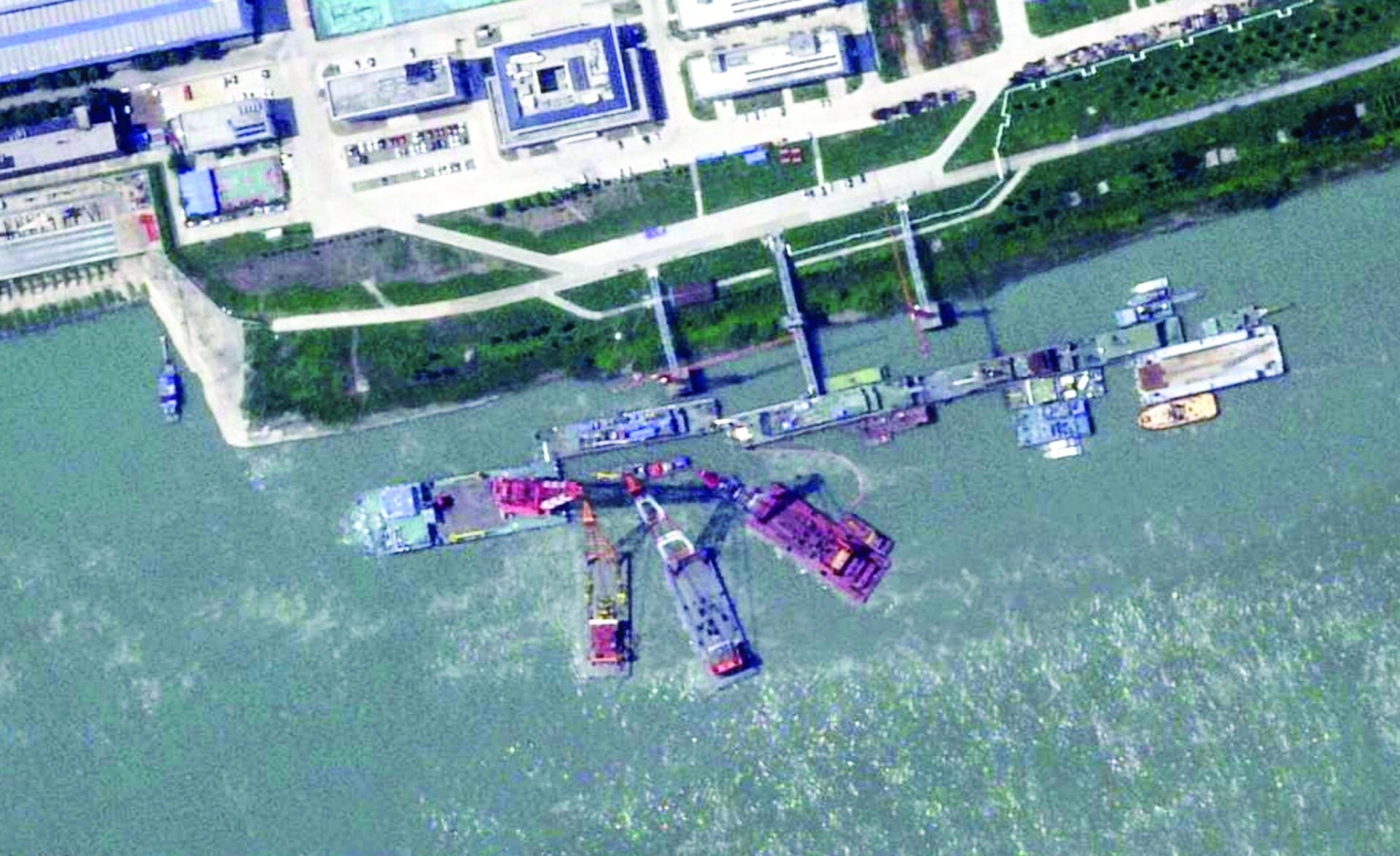The sinking of the submarine highlights potential issues within PLA and China’s defence industry.
The recent sinking of China’s newest nuclear-powered attack submarine, identified as a Zhou-class vessel, marks a significant setback for Beijing’s military ambitions. This incident, which occurred at a dock in Wuhan between May and June, has far-reaching implications for China’s naval capabilities and its broader strategic goals.
China has been aggressively modernizing its military, particularly its naval forces, to assert its dominance in the Asia-Pacific region and beyond. The loss of a state-of-the-art nuclear submarine not only diminishes its immediate naval strength but also raises questions about the quality and reliability of its military hardware. This incident could slow down China’s naval expansion plans, which aim to challenge the maritime supremacy of the United States and its allies.
The sinking of the submarine also highlights potential issues within the People’s Liberation Army (PLA) and China’s defence industry. Reports suggest that the incident may have been concealed, reflecting a lack of transparency and accountability within the PLA. This secrecy can undermine trust in China’s military capabilities, both domestically and internationally, and may indicate deeper systemic problems, such as corruption and inadequate training standards.
On the geopolitical front, this incident could embolden China’s regional rivals. Countries like Japan, India, and those in Southeast Asia, which have been wary of China’s growing military assertiveness, might see this as an opportunity to strengthen their own defence postures. The United States, which regularly conducts freedom of navigation operations in the contested South China Sea, may also leverage this incident to bolster its alliances and partnerships in the region.
There are also environmental and safety concerns associated with the sinking of a nuclear-powered submarine. While it is unclear whether the submarine had nuclear fuel on board at the time, any potential leaks could have severe environmental consequences. This incident underscores the risks associated with nuclear-powered military vessels and the importance of stringent safety protocols.
The sinking of China’s latest nuclear submarine is more than just a technical failure; it is a strategic setback with wide-ranging implications. It challenges China’s military modernization efforts, raises questions about the PLA’s internal practices, and could shift the geopolitical dynamics in the Asia-Pacific region. As Beijing grapples with this embarrassment, it will need to address these issues head-on to maintain its trajectory towards becoming a global military power.
The Dalai Lama’s nephew, Khedroob Thondup is a geopolitical analyst.

